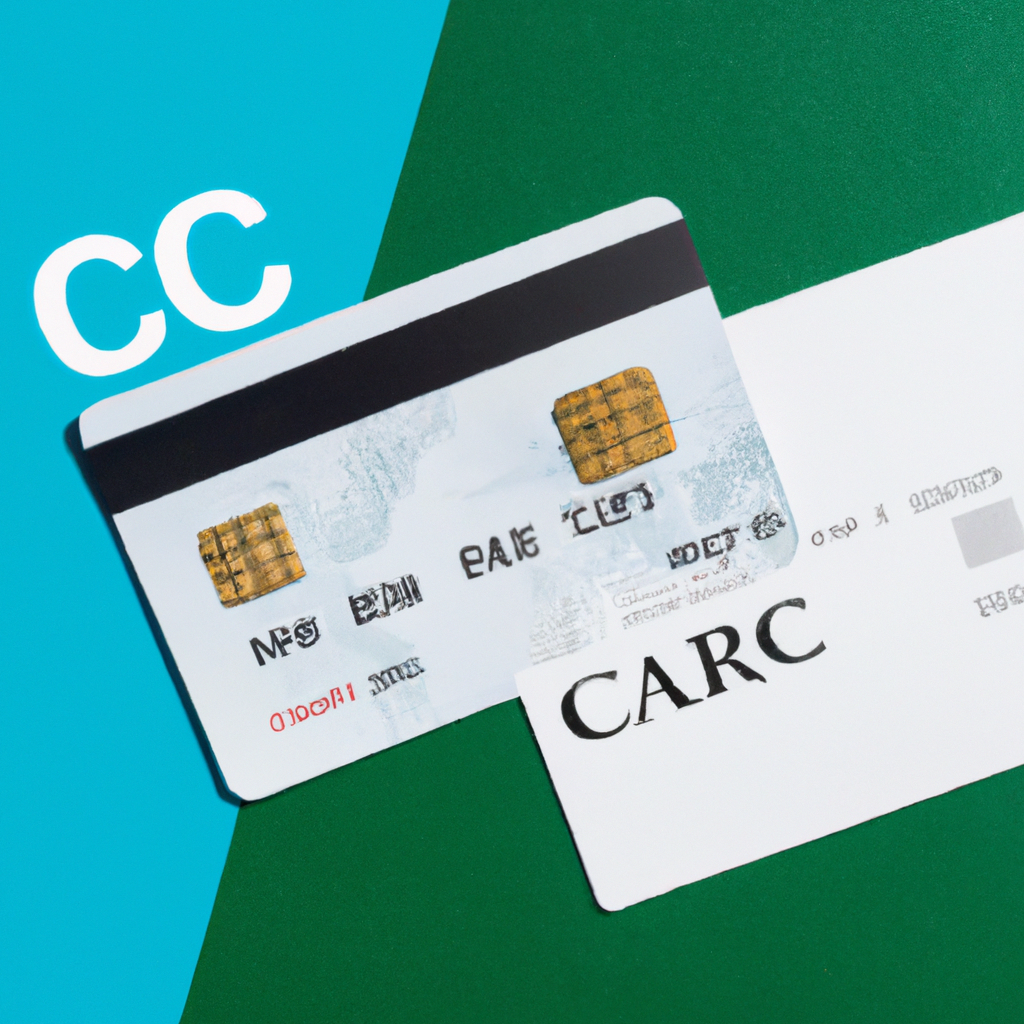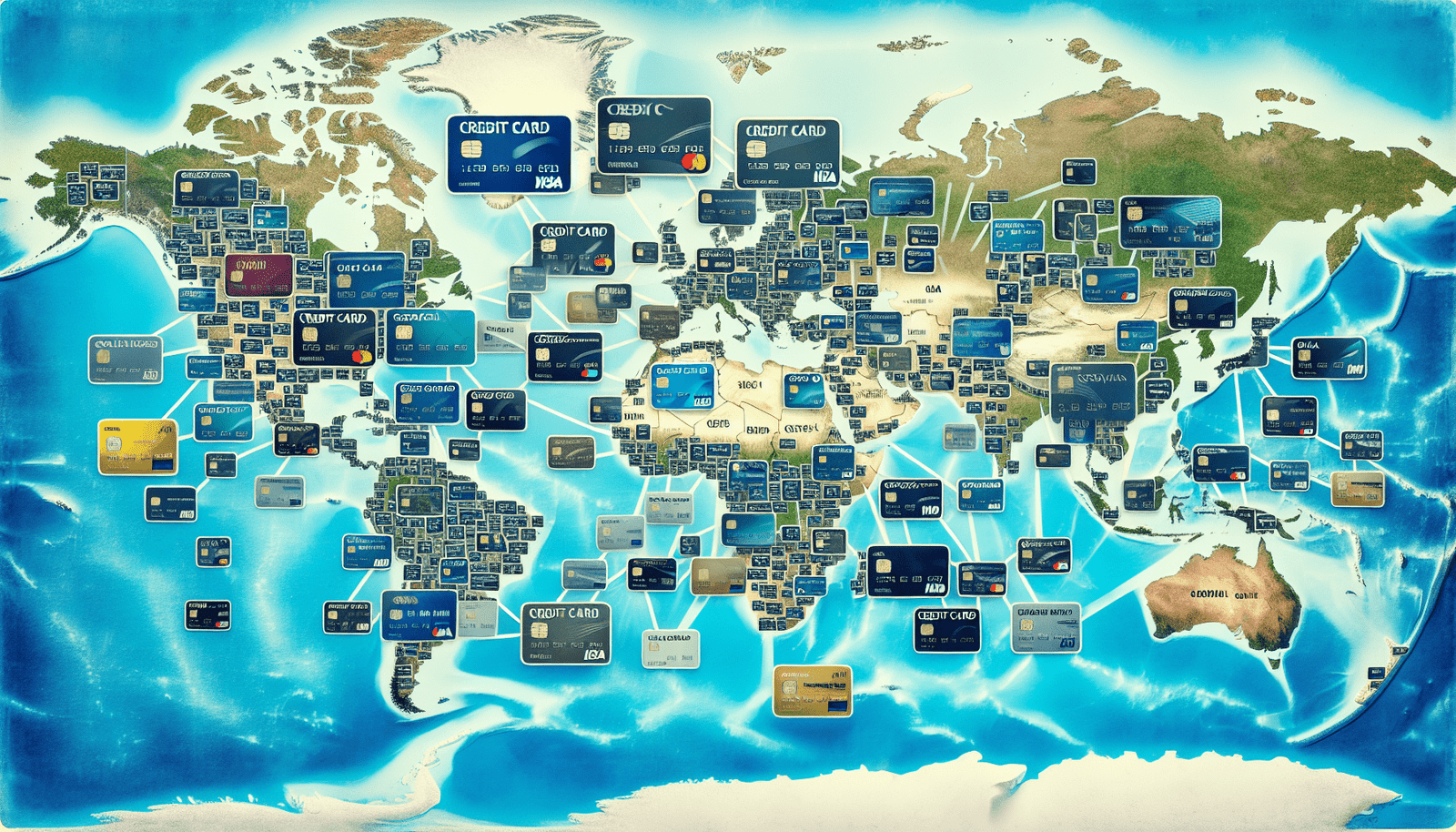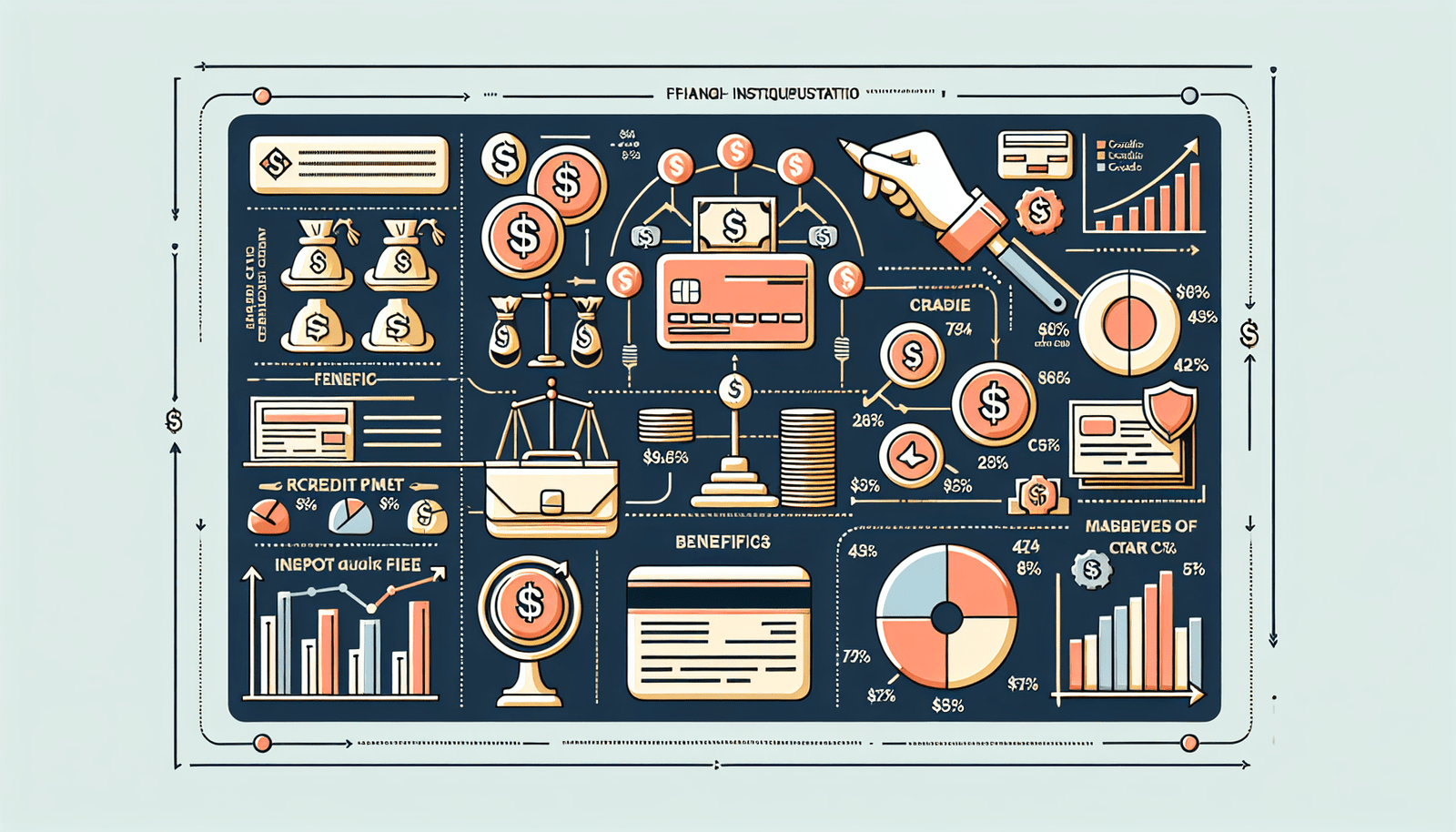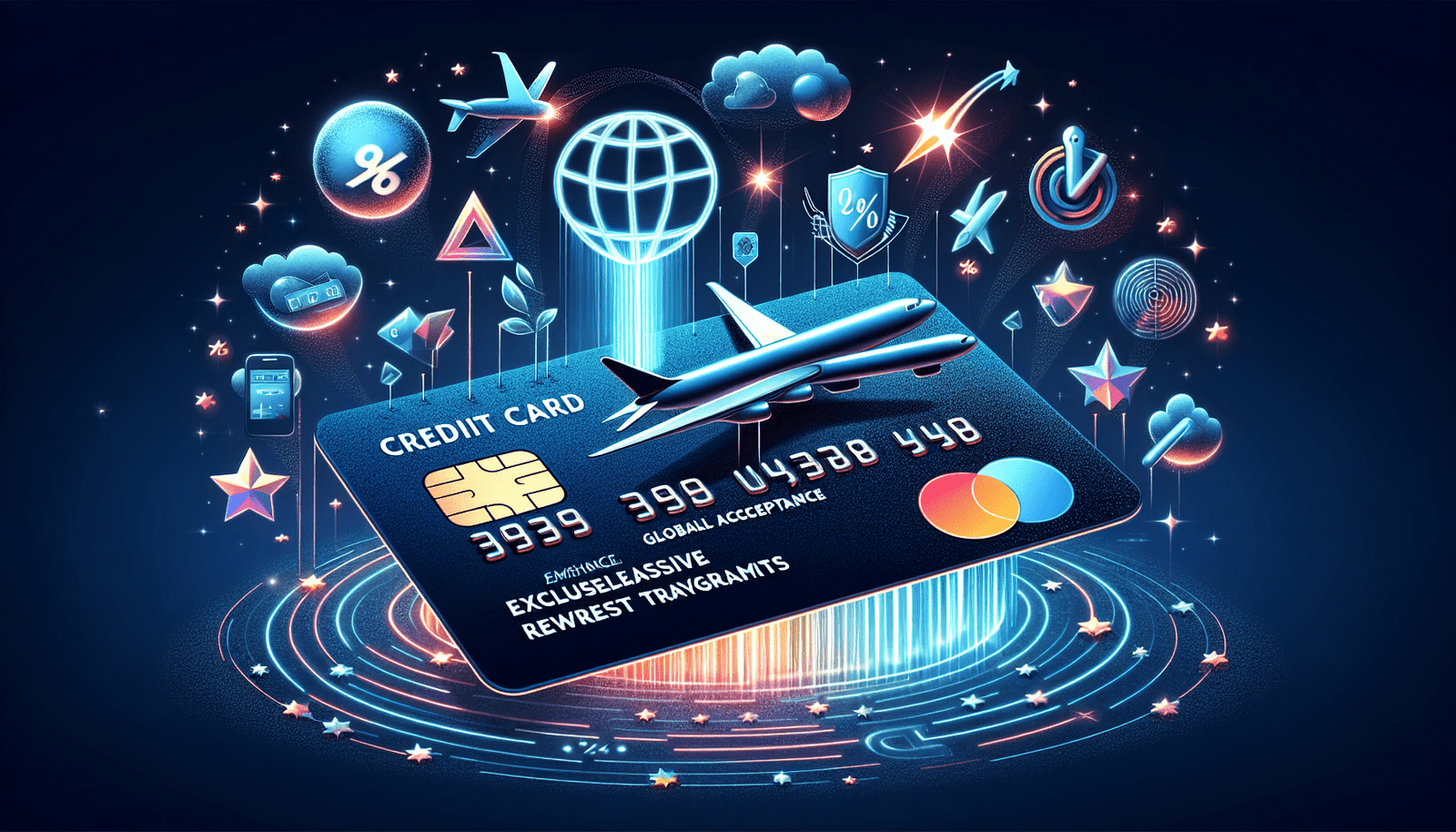Have you ever wondered about the interest rates on credit cards in Malaysia? If so, you’re in luck! In this article, we will explore and uncover the average interest rates that credit card users can expect in Malaysia. Whether you’re a current credit card holder or considering getting one, understanding the interest rates is crucial in making informed financial decisions. Let’s get started and discover what the interest rate landscape looks like for credit cards in Malaysia!
Factors that affect credit card interest rates in Malaysia
Bank policies
The interest rates on credit cards in Malaysia can vary from bank to bank. Each bank has its own policies and guidelines when it comes to setting the interest rates for credit cards. These policies are influenced by factors such as the bank’s cost of funds, market conditions, and risk management strategies. It is important to note that these policies can change over time, so it is advisable to stay updated on the latest information from your bank.
Creditworthiness of the applicant
Your creditworthiness plays a significant role in determining the interest rate on your credit card. When you apply for a credit card, banks will assess your credit history, income level, and existing debts to determine your creditworthiness. If you have a good credit score and a stable financial background, you are more likely to be offered a lower interest rate. On the other hand, if you have a poor credit history or a high level of existing debts, the bank may charge you a higher interest rate to compensate for the perceived risk.
Credit card type
Different types of credit cards in Malaysia may have varying interest rates. For example, basic credit cards typically have higher interest rates compared to premium or rewards credit cards. This is because basic credit cards usually have fewer features and benefits, so the bank may charge a higher interest rate to offset the lower revenue generated from these cards. Premium or rewards credit cards, on the other hand, often come with additional perks and privileges, so the interest rates may be lower to attract and retain customers.
Promotional offers
Banks in Malaysia often run promotional offers on credit cards, including special interest rates for a limited period. These promotional offers can be in the form of lower or even 0% interest rates for a specific duration. These offers are usually targeted at new customers or existing customers who meet certain criteria. It is important to read the terms and conditions of these promotional offers carefully, as the interest rates may increase significantly after the promotional period ends.
Types of interest rates on credit cards in Malaysia
Annual Percentage Rate (APR)
The Annual Percentage Rate (APR) is a common method used to express the interest rate on credit cards in Malaysia. It represents the cost of borrowing on an annual basis and includes not only the interest charged on outstanding balances but also other fees and charges associated with the credit card. The APR allows consumers to compare the true cost of credit between different credit cards and can be helpful in making informed decisions.
Effective Interest Rate (EIR)
The Effective Interest Rate (EIR) is another way to express the interest rate on credit cards in Malaysia. It takes into account the compounding of interest and any other fees or charges incurred over a specific period. The EIR may be higher than the APR, as it reflects the true cost of borrowing, including the effect of compounding. It is important to understand the EIR when comparing credit cards and calculating the total interest charges.
Minimum Monthly Repayment (MMR)
The Minimum Monthly Repayment (MMR) is a feature that requires credit cardholders to make a minimum payment on their outstanding balance each month. While it is not directly related to the interest rate, the MMR can affect the total interest charges. If you only make the minimum payment each month, the remaining balance will continue to accrue interest, leading to higher overall interest charges. To minimize interest costs, it is advisable to pay off the full balance each month, if possible.

Regulations and guidelines regarding credit card interest rates in Malaysia
Bank Negara Malaysia (BNM)
Bank Negara Malaysia (BNM) is the central bank of Malaysia and plays a crucial role in regulating and supervising the banking industry, including credit cards. BNM sets guidelines and regulations for banks to ensure fair and transparent practices in the calculation and disclosure of credit card interest rates. It is responsible for promoting a sound and stable financial system while safeguarding the interests of consumers.
Association of Banks Malaysia (ABM)
The Association of Banks Malaysia (ABM) is an industry association that represents commercial banks in Malaysia. ABM works closely with BNM to develop industry codes and standards, including those related to credit cards. These codes and standards aim to promote responsible lending practices and ensure clarity and fairness in the disclosure of interest rates and fees. ABM provides a platform for banks to collaborate and share best practices, benefiting both the industry and consumers.
Credit Reporting Agency Act 2010
The Credit Reporting Agency Act 2010 governs the operations of credit reporting agencies in Malaysia. These agencies provide credit reports that contain information about individuals’ credit histories, including their credit card usage and repayment behavior. This act ensures that credit reporting agencies operate in a fair, transparent, and impartial manner, providing accurate and reliable credit information to banks and consumers. The availability of credit reports enables banks to assess the creditworthiness of individuals and determine appropriate interest rates.
Average credit card interest rates in Malaysia
Varies by bank and card type
The average credit card interest rates in Malaysia can vary significantly depending on the bank and the type of credit card. Each bank has its own risk management strategies and cost structures, which can influence the interest rates offered to customers. Similarly, different types of credit cards, such as basic, premium, or rewards cards, may have different interest rates based on the features and benefits they offer. It is advisable to compare the interest rates of different banks and credit cards before making a decision.
Common range of interest rates
While the specific interest rates on credit cards in Malaysia may vary, there is a common range that can give you an idea of what to expect. Generally, credit card interest rates can range from around 15% to 18% per annum. However, it is important to note that these rates can change over time, so it is advisable to check with the respective banks for the most up-to-date information. Remember to also consider other factors, such as fees, charges, and rewards, when selecting a credit card.

Comparison of credit card interest rates across major banks in Malaysia
Bank A
Bank A offers competitive interest rates on their credit cards. They have a range of cards to suit different needs and often provide promotional offers with attractive interest rates for new customers. Bank A also offers installment plans with lower interest rates for big-ticket purchases. Their customer service is excellent, and they have a strong online banking platform, making it convenient to manage your credit card account.
Bank B
Bank B is known for offering low-interest rates on their credit cards, making them an attractive option for those who prioritize interest cost savings. They have a user-friendly mobile app that allows you to track your spending and manage your credit card account with ease. Bank B also provides balance transfer facilities, which allow you to transfer outstanding balances from other credit cards at a lower interest rate for a specific period. This can help consolidate your debts and save on interest charges.
Bank C
Bank C offers a range of credit cards with competitive interest rates. They have a strong focus on customer rewards and benefits, offering cashback, air miles, and other perks. Bank C also provides exclusive privileges for their credit cardholders, such as access to airport lounges, discounts at partner merchants, and special promotions. Their online banking platform is user-friendly, and they have a dedicated customer service team to assist you with any queries or issues.
Bank D
Bank D is known for offering premium credit cards with a wide range of benefits and features. While their interest rates may be slightly higher compared to other banks, the added perks and privileges can make it worthwhile for those who value the extra benefits. Bank D offers premium travel insurance, concierge services, golf privileges, and access to exclusive events. Their credit cards also come with comprehensive rewards programs, allowing you to earn points that can be redeemed for flights, hotel stays, and other exciting rewards.
Understanding promotional interest rates on credit cards
Introductory low or 0% interest rates
Promotional interest rates on credit cards often include introductory low or 0% interest rates for a specific period. These offers are designed to attract new customers or encourage existing customers to use their credit cards more frequently. During the promotional period, you can enjoy the benefit of low or no interest charges on your outstanding balances. It is important to note the duration of the promotional period and any conditions attached to the offer to avoid any surprises once the promotional period ends.
Duration of promotional period
The duration of promotional periods can vary depending on the bank and the specific offer. Some promotional periods may last for a few months, while others may extend up to a year or more. It is important to carefully consider the duration of the promotional period to ensure that it aligns with your financial needs and goals. For example, if you plan to make a large purchase and need time to repay the balance without incurring interest charges, a longer promotional period would be more beneficial.
Terms and conditions
Promotional offers on credit cards often come with terms and conditions that need to be met to qualify for the promotional interest rates. These conditions may include minimum spending requirements, specific merchant categories, or a limit on the maximum transactions eligible for the promotional rates. It is important to read and understand the terms and conditions of the offer to make the most of the promotional rates and avoid any potential pitfalls. Be aware of any penalties or charges that may apply if you do not meet the conditions.

How the credit card interest rate is calculated in Malaysia
Daily balance method
In Malaysia, credit card interest rates are typically calculated using the daily balance method. This means that interest is charged on the outstanding balance on a daily basis. To calculate the interest for a specific period, the bank multiplies the daily outstanding balance by the daily interest rate and sums up these amounts over the entire period. The daily interest rate is derived by dividing the annual interest rate by the number of days in the year.
Average daily balance method
Another method used to calculate credit card interest rates is the average daily balance method. Under this method, the bank calculates the average of the outstanding balance over a specified period, such as a billing cycle, and applies the annual interest rate on this average balance. This method takes into account any payments or credits made during the period and provides a more accurate representation of the interest charges. It is important to review the terms and conditions of your credit card to understand which method is used by your bank.
Examples of interest calculations
To illustrate how credit card interest rates are calculated, let’s consider an example. Suppose you have an outstanding balance of RM1,000 on your credit card with an annual interest rate of 18%. Using the daily balance method and assuming a 30-day month, the daily interest rate would be 0.049%. Over a billing cycle of 30 days, the total interest charged would be approximately RM14.70. However, it is important to note that this is a simplified example, and the actual interest charges may vary based on factors such as the method used, billing cycle, and any promotional rates or fees.
Factors to consider when choosing a credit card with a low interest rate
Interest rate structure
When choosing a credit card with a low interest rate, it is important to consider the interest rate structure. Some credit cards may offer a fixed interest rate, which remains the same regardless of changes in market conditions. On the other hand, some credit cards may have a variable interest rate, which fluctuates based on factors such as the benchmark rate set by the central bank or changes in the bank’s cost of funds. Understanding the interest rate structure can help you anticipate any potential changes in interest charges.
Other fees and charges
In addition to the interest rate, it is important to consider any other fees and charges associated with the credit card. These fees may include annual fees, late payment fees, cash advance fees, and foreign transaction fees, among others. While the interest rate is a significant factor in determining the overall cost of borrowing, these additional fees can also add to your expenses. Therefore, it is advisable to compare the fees and charges of different credit cards and choose one that best aligns with your financial needs and usage patterns.
Rewards and benefits
While the interest rate is an important consideration, it is also worth considering the rewards and benefits that come with the credit card. Some credit cards offer cashback, air miles, or other rewards programs that allow you to earn points or discounts on your spending. These rewards and benefits can help offset the cost of any interest charges and provide additional value. However, it is important to assess whether the rewards and benefits align with your preferences and spending patterns to ensure that they are meaningful and valuable to you.
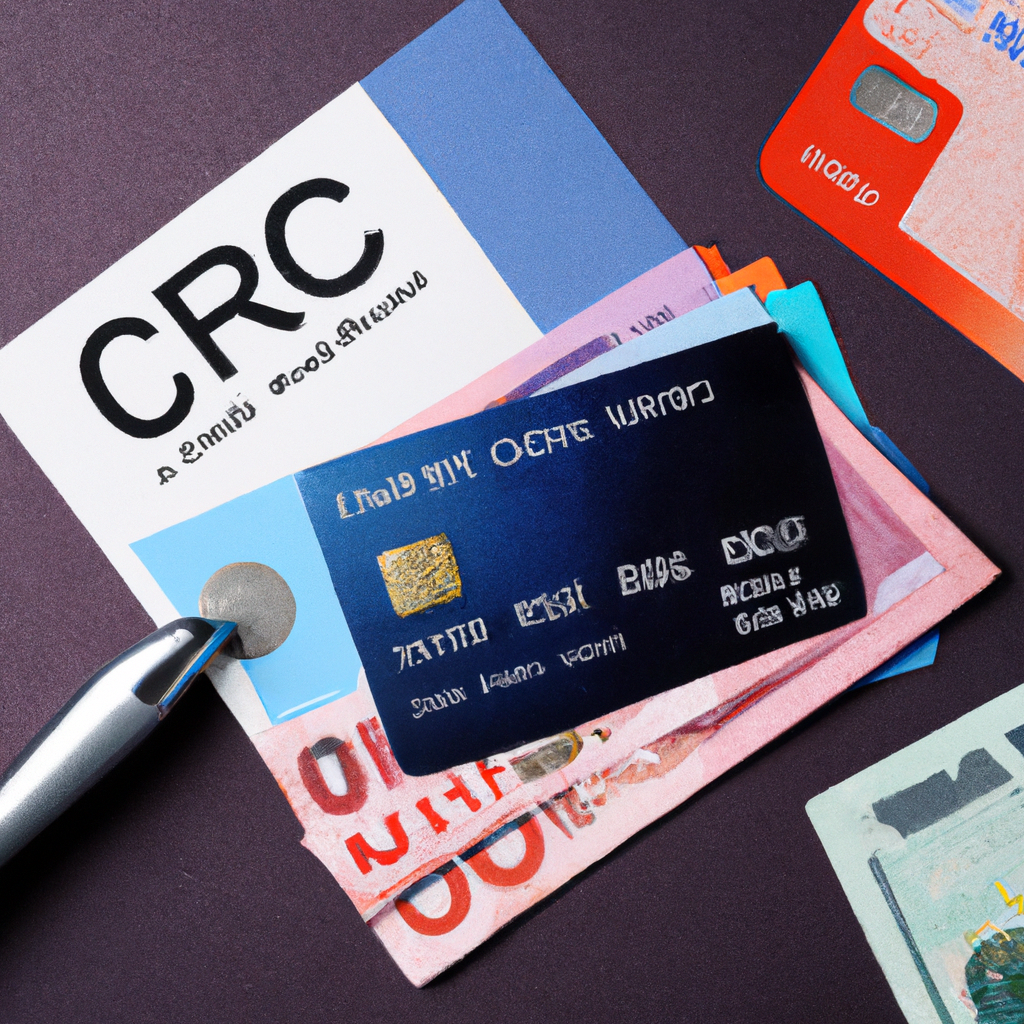
Importance of managing credit card debt and minimizing interest charges
Paying off the full balance
One of the most effective ways to manage credit card debt and minimize interest charges is to pay off the full balance each month. By doing so, you can avoid carrying balances from one month to another, which can accumulate interest charges. Making timely and full payments also helps maintain a good credit history and avoids late payment fees or penalties. If you are unable to pay off the full balance, try to pay as much as possible to reduce the outstanding balance and minimize interest charges.
Avoiding unnecessary charges
To minimize interest charges, it is important to avoid unnecessary charges on your credit card. This includes avoiding unnecessary spending, especially on items that may not be essential or within your budget. Additionally, be mindful of any fees or penalties associated with the credit card, such as cash advance fees or late payment fees. By being aware of these charges and making informed decisions, you can prevent unnecessary expenses and reduce the overall cost of borrowing.
Using balance transfer facilities
If you have existing credit card debt with high-interest rates, consider using balance transfer facilities to lower your interest charges. Balance transfer allows you to transfer outstanding balances from one credit card to another, usually at a lower interest rate for a specified period. This can help consolidate your debts and make it easier to manage your payments. However, it is important to read and understand the terms and conditions of balance transfer offers, including any fees or charges that may apply.
How to negotiate for a lower interest rate on credit cards in Malaysia
Contacting the credit card issuer
If you are looking for a lower interest rate on your credit card, one option is to contact your credit card issuer and negotiate for a lower rate. Reach out to the customer service department or contact the bank through their designated channels to express your request. Explain your situation, provide any relevant supporting documents, and highlight why you believe that a lower interest rate is justified. The bank may consider your request based on factors such as your creditworthiness, payment history, and the competitive landscape.
Highlighting good payment history
A key factor that can influence the bank’s decision to lower your interest rate is your payment history. If you have a good track record of making timely payments and maintaining a low credit utilization ratio, emphasize these points when negotiating. Demonstrate your financial responsibility and the fact that you are a low-risk customer. This can strengthen your case and increase the likelihood of the bank offering a lower interest rate in recognition of your positive credit behavior.
Exploring balance transfer or restructuring options
If negotiating directly with your credit card issuer does not yield the desired outcome, consider exploring other options such as balance transfer or debt restructuring. Balance transfer allows you to transfer your outstanding balances to another credit card with a lower interest rate or promotional offer. Debt restructuring, on the other hand, involves working with a credit counseling agency or seeking professional advice to develop a repayment plan that suits your financial situation. These options can help lower your interest charges and make it more manageable to pay off your credit card debt over time.
In conclusion, the interest rates on credit cards in Malaysia can be influenced by various factors such as bank policies, creditworthiness of the applicant, credit card type, and promotional offers. The types of interest rates include the Annual Percentage Rate (APR), Effective Interest Rate (EIR), and Minimum Monthly Repayment (MMR). Regulations and guidelines from authorities such as Bank Negara and the Association of Banks Malaysia ensure fair practices in setting credit card interest rates. Average interest rates can vary by bank and card type, with a common range of around 15% to 18% per annum. When comparing credit card interest rates, it is important to consider the interest rate structure, other fees and charges, and rewards and benefits. Managing credit card debt and minimizing interest charges can be achieved by paying off the full balance, avoiding unnecessary charges, and utilizing balance transfer facilities. Negotiating for a lower interest rate can be done by contacting the credit card issuer, highlighting good payment history, or exploring other restructuring options. By understanding these factors and strategies, you can make informed decisions and choose a credit card that best suits your financial needs.
